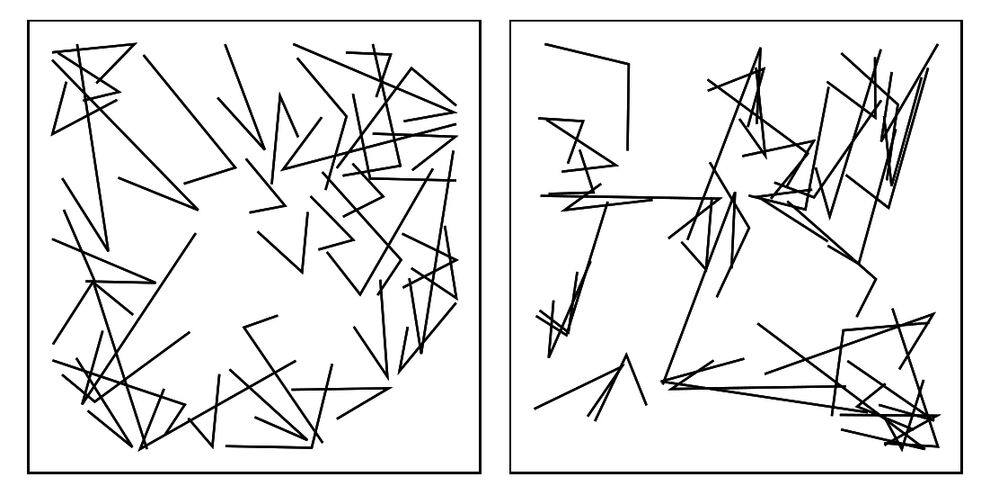Principal investigator: Prof. Dr. Dr. Christoph Redies, Dr. Maria Grebenkina
2017 - 2019
Projektleiterin: Prof. Dr. Britta Qualmann
DFG 2020-2020
Human observers prefer objects and images with curvilinear shapes over objects with straight or angular outlines. Because curved shapes exhibit more orientations than angular ones, we studied the preference for edge orientation distributions in various types of images systematically. Our results revealed that, in general, images with a more uniform distribution of edge orientations are rated as more harmonious than images in which particular orientations dominate (Grebenkina et al., 2019).
Principal investigators: Prof. Dr. Dr. Christoph Redies, Prof. Dr. Christian Dobel
2018 - 2020
Affective photographs can elicit positive or negative emotions, depending on the content they show. We found that, in addition, formal global image properties can predict the responses to the affective pictures. Depending on the dataset analyzed, individual global image properties can predict between 6% and 20% of the variance in the subjective ratings. We thus conclude that affective pictures evoke emotions not only by what they show, but also differ by how they show it (Redies et al., 2020).
Principal investigator: PD Dr. Gregor Uwe Hayn-Leichsenring
2015 - 2019
We investigated the difference in composition of abstract art between artists and laypersons. We showed that artist created images that were significantly less self-similar and adhered more closely to the so-called Rule-of-Thirds. Furthermore, naïve observers were able to distinguish between the groups. Overall, our study showed that there are differences in the creation of abstract art between laypersons and artists and naïve observers can recognize artist’s creations as a class (Letsch and Hayn-Leichsenring, 2020).
Principal investigators: Dr. Uta Biedermann, Dr. Cornelius Lemke
We are pursuing clinically oriented research projects in collaboration with several institutions, e.g. biomechanical studies with the University Hospital for Trauma, Hand and Reconstructive Surgery and the Waldkliniken Eisenberg GmbH. Together with the Institute for Biochemistry 2, we are carrying out molecular studies in the cardiovascular system.


